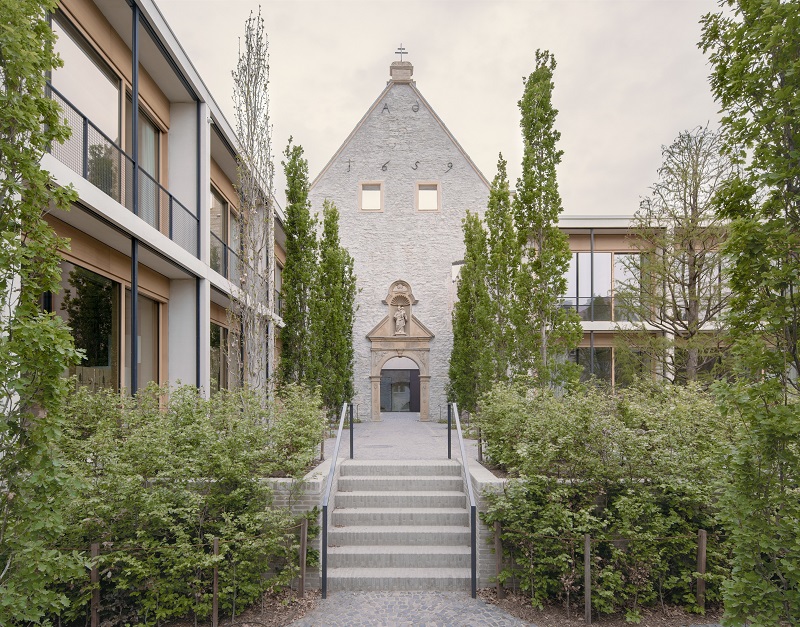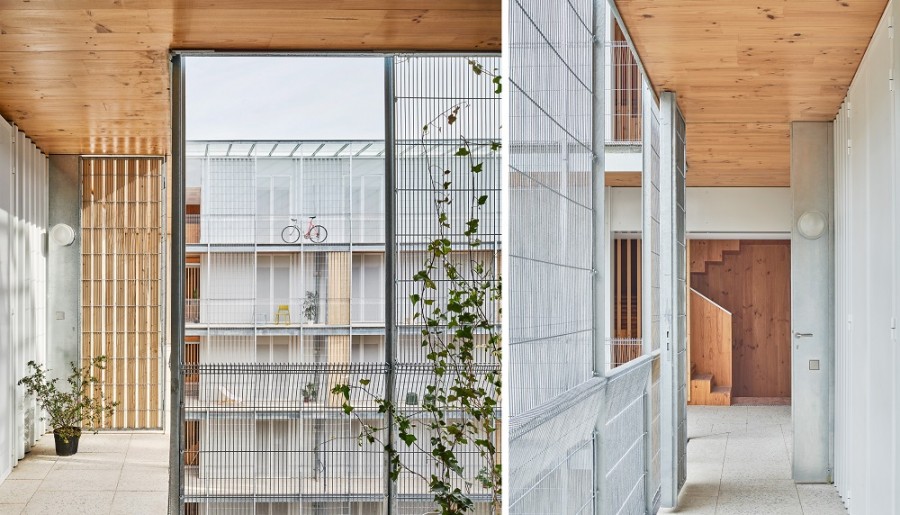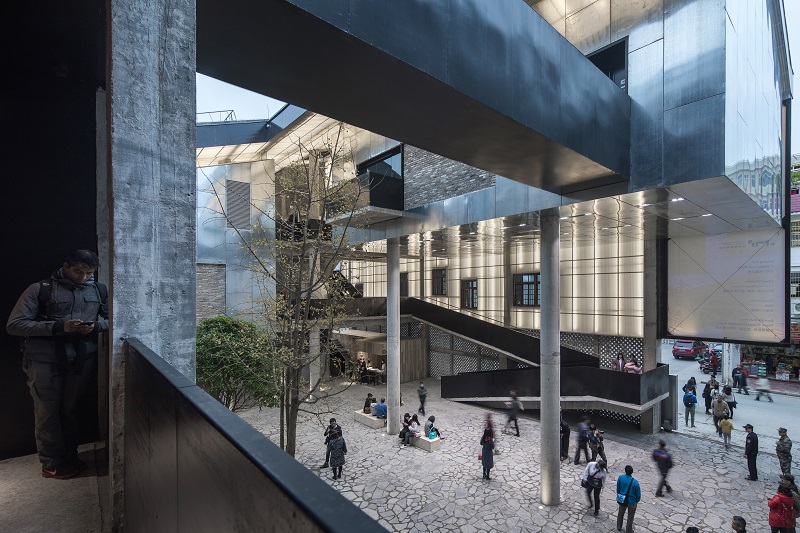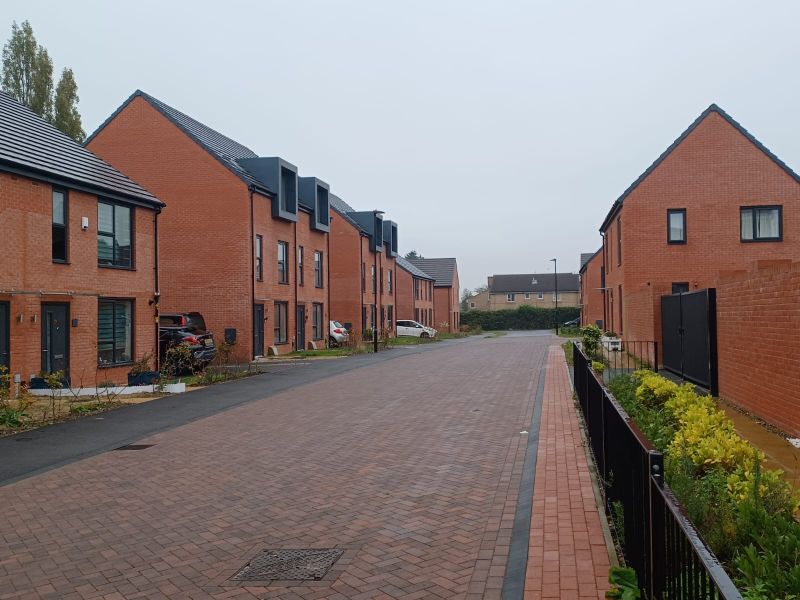The Royal Institute of British Architects (RIBA) has revealed the shortlist of three projects competing for the world’s most prestigious award for architecture, the RIBA International Prize.
One of the three projects - located Germany, Spain, and China - will soon be crowned the world’s most transformative building.
The three finalists of the RIBA International Prize 2024 are:
- Jacoby Studios, Paderborn, Germany, by David Chipperfield Architects Berlin
- Modulus Matrix: 85 Social Housing in Cornellà, Barcelona, Spain, by Peris + Toral Arquitectes
- Lianzhou Museum of Photography, Lianzhou, China, by O-office Architects
The three projects are now in the running for the fourth RIBA International Prize which will be announced on 27 November 2024, alongside the winner of the RIBA International Emerging Architect. Each of these projects sets an example for the future of architecture, demonstrating change in the way that architecture is designed and built with current and future generations in mind.
Established in 2015, the RIBA International Prize is one of architecture’s highest global accolades, awarded to a building that demonstrates visionary thinking, originality, excellence of execution, and makes a distinct contribution to its users, surrounding environment and communities.
Jacoby Studios and Modulus Matrix: 85 Social Housing in Cornellà were amongst the 22 winners of the RIBA International Awards for Excellence, announced in June this year, which highlighted architectural excellence. Lianzhou Museum of Photography has re-entered the process, at this stage, following its success in the previous 2021 RIBA International Awards cycle, but the project could not be visited due to strict pandemic restrictions.
RIBA President Muyiwa Oki said: “The conservation of the planet’s resources and the provision of the best housing in which people can grow and thrive remain two of the central concerns of architects around the world. From a timber-framed social housing building with an inventive use of space, to two projects focused on the repair, restoration and transformation of buildings to create new and useful space to work or participate in culture, these three inspiring projects demonstrate the ability of architecture to meet shared, global challenges head on.”
Jacoby Studios, Germany, by David Chipperfield Architects Berlin

Sited in Paderborn, a medieval town in the north Rhine region of Germany, Jacoby Studios is an example of innovative and sensitive reordering of existing buildings within a historic setting to create a new headquarters for a family run business. The project results in a harmonious form, with existing stone and brick walls repaired and left exposed with new concrete and timber elements stitching together parts of the ruin to integrate the new extended form that mediates between the old and new.
The jury commented on the beautiful execution in mixing repair and restoration with disciplined new-build. By celebrating the presence of the gothic monastery with new wings, the building offers a model for sophisticated office space with a richness that is difficult to emulate in a new speculative office build.
David Chipperfield, founder and principal of David Chipperfield Architects, said: “We are honoured that the Jacoby Studios has been shortlisted for the RIBA International Prize. Our project, deeply rooted in its complex historical context, brings together fragmented elements to create a cohesive urban whole. We reinterpreted historic structures and carefully balanced old and new, architecture and landscape, to create a comfortable and stimulating workspace. Thanks to the shared vision of architects, landscape architects, and a highly committed client, the process has been collaborative and rewarding, and we are deeply appreciative of this recognition from RIBA.”
Modulus Matrix: 85 Social Housing in Cornellà, Spain, by Peris + Toral Arquitectes

Modulus Matrix is a ground-breaking, six-storey courtyard building of 85 flexible, socially rented homes in Barcelona using timber frame construction. Since completion, the project has fostered a strong sense of neighbourliness and pride in its resident community. Using the tatami mat module of 2.6m x 3.6m, the building is planned around a simple, central, communal courtyard, with four circulation cores in each corner, and each floor described as a ‘matrix of communicating rooms’.
The jury applauded the project’s clear intentions as a commentary on space and construction. While the building is literally a combination of separate apartments, is has come together as one collective domestic space. The efficient use of CLT combined with clever composition create a duality that is both profoundly poetic and extremely practical.
Marta Peris and Jose Toral, co-founders of Peris + Toral Arquitectes, said: “We deeply appreciate this recognition for 'Modulus Matrix' because if there is one thing that characterises housing, it is its capacity for social transformation. The home embodies values with which we grow and build our way of being in the world. This project proposes an alternative way of living in a matrix of undifferentiated rooms - without hierarchies, without corridors, without gender distinctions - through a method of construction in wood with low carbon impact. It is not only a great honour; it represents an opportunity to amplify that social impact and reflect the commitment to social innovation.”
Lianzhou Museum of Photography, China, by O-office Architects

Lianzhou Museum of Photography was built on the site of the local sugar mill, with the purpose of revitalising the traditional downtown of Lianzhou, a remote city of northern Guangdong in South China. At the heart of the complex is a retained and refurbished warehouse, wrapped around which is a U-shaped new structure on three to five levels, the two buildings being linked by a mainly external courtyard complex which weaves around galleries and meeting places, balancing contemporary arts with local identity.
The jury praised the physical and spiritual integration of the project into the fabric and community, together with its visceral beauty. Having developed somewhat organically as the result of photography exhibitions, the publicly-funded project beautifully balances contemporary arts with local identity, marrying the past and the present within the material culture of the place.
Jianxiang He, Principal and Partner of O-office Architects, said: “It is a great honour for us, and more importantly, this recognition will allow more people to understand the project's significance to the local community as a contemporary art museum that re-characterises a remote southern Chinese city. “
The bi-annual Prize is one of the world’s most rigorously judged architecture awards, with every shortlisted building visited by a group of international design experts and the three finalists nominated by the RIBA Awards Group which oversees the RIBA’s Awards process. It is open to any registered architect in the world and awarded to a building of any size, type or budget. The Grand Jury visits each shortlisted project.
This year’s Grand Jury comprises:
- Chair: Lu Wenyu, Co-founder of Amateur Architecture Studio
- Tosin Oshinowo, Founder and Principal of Oshinowo Studio and Curator of the Sharjah Architecture Triennial 2023
- Paola Antonelli, Senior Curator, Department of Architecture and Design, and Director, Research and Development, The Museum of Modern Art
The winner of the RIBA International Prize 2024 will be announced on 27 November 2024.
The winner of the last RIBA International Prize, presented in 2021, was the Friendship Hospital in Bangladesh, designed by Khashef Chowdury/URBANA. Selected from a shortlist of three outstanding entries, it was praised for its contribution to the client’s philanthropic mission, use of local and traditional crafted materials, and skillful integration into its natural surroundings. Aleph Zero and Rosenbaum was awarded the RIBA International Prize 2018 for Children Village in northern Brazil, after Grafton Architects won in 2016 for The Universidad de Ingeniería y Tecnología in Lima, Peru.






















